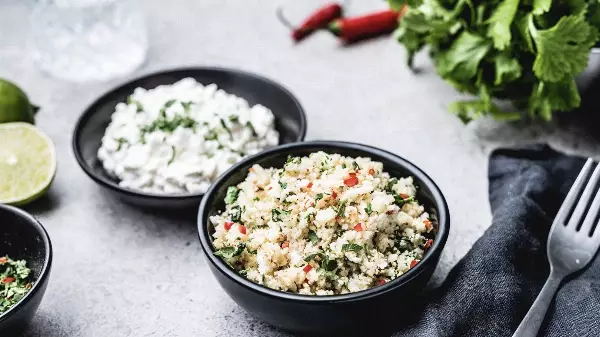Your Guide To A Fibromyalgia Diet
As you probably know, fibromyalgia leads to ongoing fatigue and pain. At the moment, there is no cure for it. Still, some medication and lifestyle changes might help you manage the symptoms. If you’re looking forward to discovering how to manage fibromyalgia with a personalized diet, this article is for you. Up next, we’ve shared our insights on the fibromyalgia diet.
What is fibromyalgia?
Fibromyalgia is a chronic condition with widespread pain as the leading symptom. Besides this, it can have additional symptoms such as fatigue, tenderness, or memory issues. Many fibromyalgia patients experience a lot of anxiety and depression, too. Keep in mind that it is always best to ask for medical advice if you suspect you have fibromyalgia. This condition might be challenging to diagnose, and it might require professional care.

How does a healthy diet influence fibromyalgia symptoms?
Specialists say that the best fibromyalgia diet is the one with adequate nutrient intake. This signifies that it should include plenty of fresh vegetables and fruits, along with healthy fats, whole grains, and lean protein.
Since fibromyalgia can make you feel tired, eating for energy is a must. Overall, this signifies that you should focus your diet on specific energy-boosting foods. Also, you can mix protein and fats with carbohydrates for a better energy distribution throughout the day. Some of the best foods you can have with your fibromyalgia diet are:
- almonds and other nuts and seeds
- broccoli
- beans
- tofu
- oatmeal
- dark leafy greens
- avocado
A couple of studies suggest that going vegetarian might benefit you. And this happens since specific foods have a direct impact on the intensity of fibromyalgia symptoms. Keep in mind that a vegetarian diet is a highly restrictive meal plan, meaning that you should ask for medical advice before starting it.

Which are the foods that trigger fibromyalgia symptoms?
This is a common question among fibromyalgia patients, and you should know there is no exact answer. Still, some studies suggest that the following foods can worsen your condition and discomfort.
Avoid FODMAPs
Fermentable oligosaccharide, disaccharide, monosaccharide, and polyols (FODMAPs) is the name for specific carbs that are fermented by gut bacteria. As such, they trigger fibromyalgia symptoms and can even worsen the existing ones. Some research discovered that people who follow a low-FODMAP diet experience an improved quality of life and lesser fibromyalgia symptoms.
Avoid gluten
Some experts believe that non-celiac gluten sensitivity might add up to the early onset of fibromyalgia. Moreover, patients who tested negative for celiac disease still experience a notable decrease in symptom intensity after following a gluten-free diet.
Avoid food additives
Most of the food additives you see in processed foods nowadays can cause inflammation in the body. As such, it can worsen your condition and lead to significant discomfort. A particular study showed that only after one month of removing glutamate, aspartame, or altered proteins from a diet leads to improved pain symptoms and management.
Avoid processed meat
Processed meat is rich in preservatives and salt. Also, they might feature ‘natural flavors’, which in reality, are additives. As a result, such preservatives can cause inflammation in the body and can worsen your symptoms. It is best to avoid canned meat, sausages, ham, deli meat, beef jerky, bacon, and hot dogs.
Avoid sugar
Artificial sweeteners and sugars can take a toll on your wellbeing. Fibromyalgia fatigue doesn’t benefit from a boost of energy from such ingredients. In fact, high sugar intake increases your chances of developing other inflammatory diseases.
How to create a fibromyalgia diet?
Mainly, it would be best if you focused on eating nutritious and healthy foods. This signifies that you should avoid fast food or any processed food on the market. Instead, it is highly recommended to include in your meal plan fresh vegetables and legumes. And it might be helpful to keep a food diary. Many fibromyalgia patients identify with ease foods that worsen their situation.
Keep in mind that in order to achieve the best fibromyalgia diet, you should ask for medical advice. Also, seeing a dietitian might turn out to be helpful, as he or she will guide you towards the healthiest meal plan for your situation.
The bottom line
Fibromyalgia is a challenging condition to manage. Still, with some lifestyle changes, you can manage it better. Make sure you exercise daily, and, of course, that you eat plenty of nutritious , healthy foods.
, healthy foods.
updates?










0